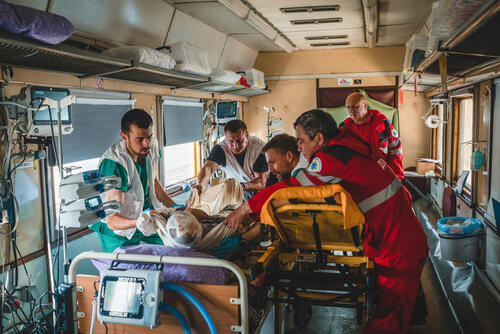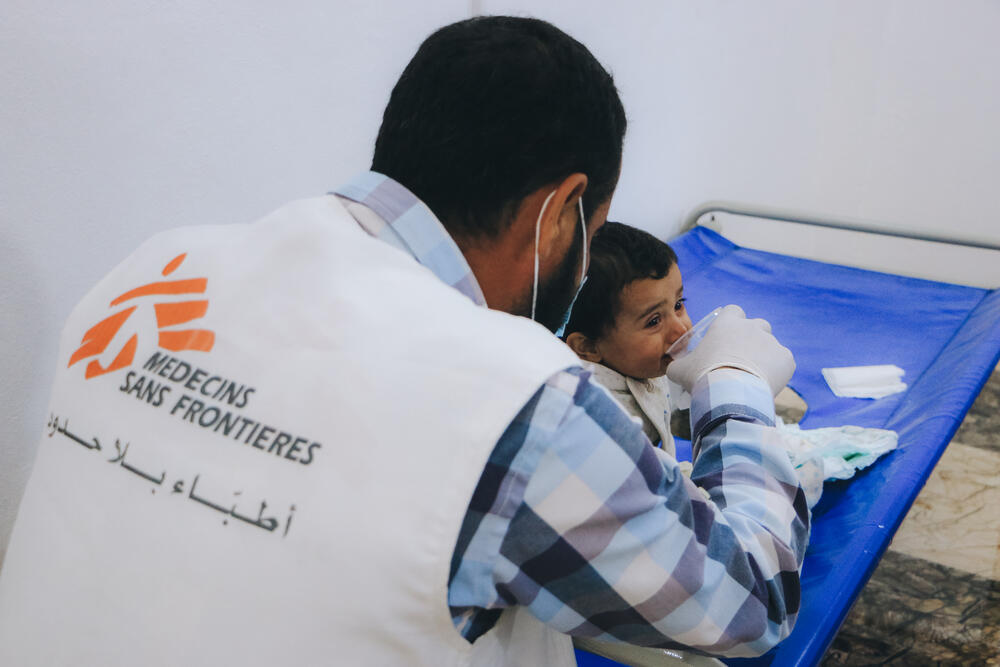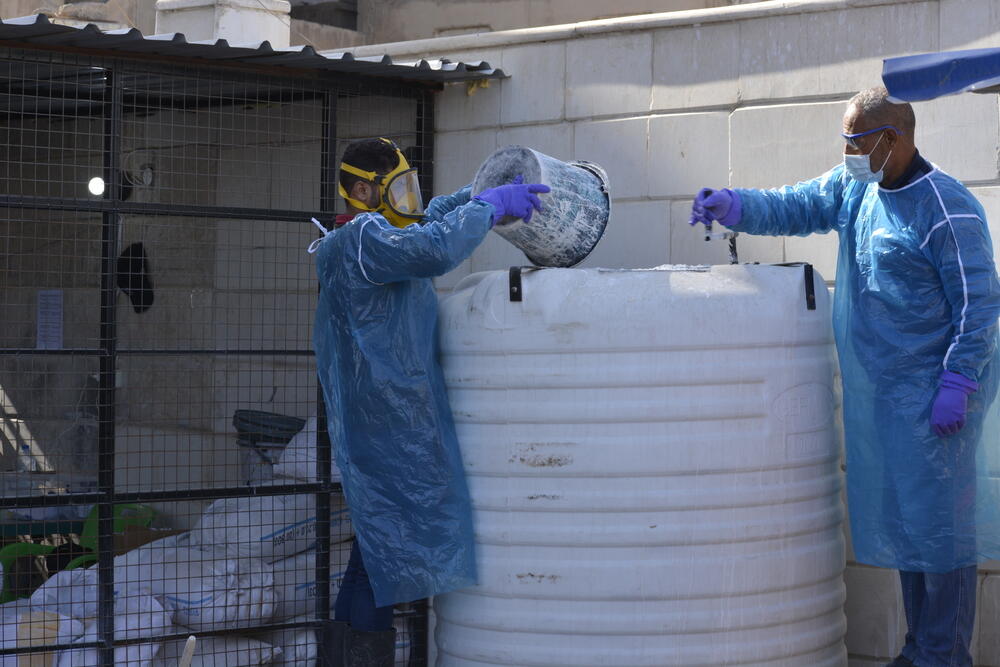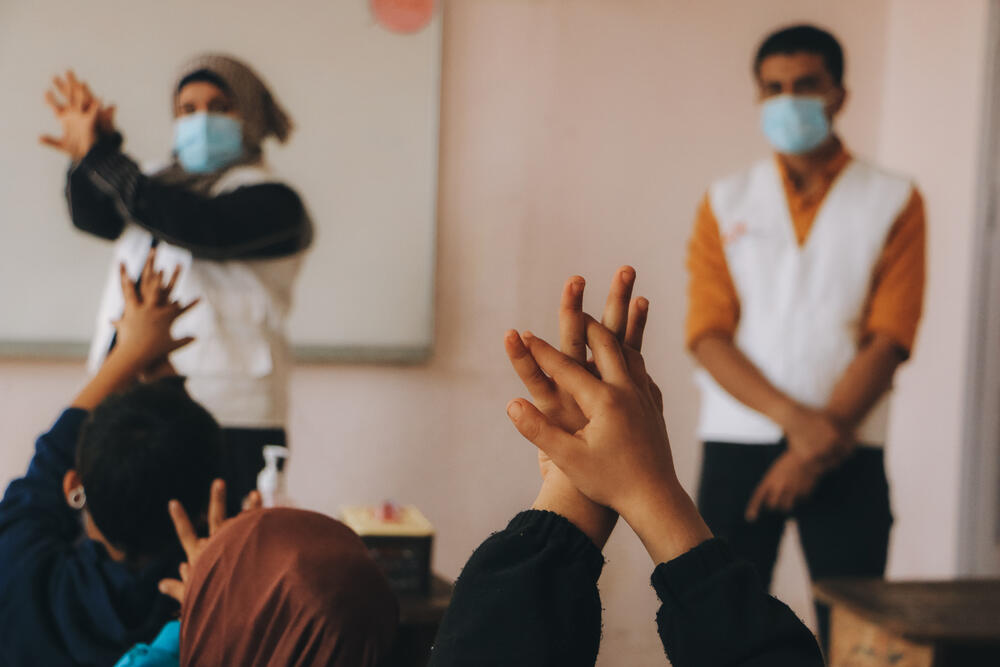Syria: First cholera outbreak in 15 years threatens conflict-hit healthcare system
It is 9 am in Raqqa, the war-ravaged but still bustling city in northeast Syria.
Fatina, who is originally from Aleppo, is lying on her bed in a cholera treatment unit – known as a CTU – that’s supported by Médecins Sans Frontières / Doctors Without Borders (MSF). She is feeling weak so a nurse is helping her drink an oral rehydration solution from a cup.
Fatina is recovering from a disease that hasn’t been seen in Syria for 15 years.
Having survived the conflict that has battered the region since 2011, she came to visit her son who was forced to flee to Raqqa following the previous fighting. However, she became ill shortly after arriving.
Never miss an update
Get the latest news on outbreaks and disease with our email newsletter, Frontline.
You'll also receive our best stories, critical updates and unique ways to get involved.
Fatina is now getting ready to see her family again, but sadly not in person. A video call is being set up from the CTU to minimise the number of visitors and prevent the spread of the bacteria.
“I was first hospitalised at Raqqa National Hospital by my family,” says Fatina.
“My condition got worse; I was suffering from a severe headache, diarrhoea, and uncontrollable vomiting when I arrived at the CTU. I am not sure why I got so sick, but it felt like I was dying”.
Explained: Cholera
Cholera is a deadly but treatable disease that affects millions of people worldwide – killing around 140,000 each year.
The bacteria causes profuse diarrhoea and vomiting, which can lead to death from intense dehydration, sometimes within hours.
Cholera outbreaks often occur where there is overcrowding and limited access to clean water and sanitation. The disease is a particular risk in the aftermath of emergencies such as earthquakes and tropical cyclones, as well as rainy seasons.
The source
MSF is responding to this ongoing cholera outbreak in northeast Syria in partnership with local health authorities.
The CTU itself in Raqqa used to be a COVID-19 hospital but laid quiet for months as the number of critical patients dropped off and a dedicated facility was no longer needed. However, the lights are back on and a reassuring MSF team is welcoming patients.
Since the outbreak was first declared in September, our teams have now treated more than 3,000 suspected cases in the northeast alone.
First linked to contaminated water from the Euphrates River, cholera emerged in the city of Deir ez-Zur and then travelled along the river to Raqqa and Aleppo before quickly spreading across the country.
At the same time, a prolonged drought has forced many people to get their water from compromised sources such as rivers and open canals.
There is now a danger of a full-blown cholera outbreak – a particular concern with a local healthcare system decimated by 11 years of conflict.
The northwest
In Idlib governorate, in the northwest, 30-year-old Alaa Hassan arrived exhausted and ill at the MSF-supported 24-bed CTU. The only one of its kind operating in the area.
“At first, I thought it was just a normal intestine infection, but within hours my vomiting and diarrhoea worsened. I almost passed out and my blood pressure suddenly dropped,” say Alaa.
"I heard about the spread of cholera in Syria, but I did not expect to catch it and suffer from such serious symptoms.”
MSF is also supporting three other CTUs in the region, as well as four Oral Rehydration Points (ORPs) which are the first step in treatment for patients who are showing symptoms but don’t yet require hospitalisation.
So far, around 300 patients have been treated at the ORPs and 220 by the CTUs in northern Idlib.
Around 20 percent of cases were considered to have severe symptoms, mostly due to a delay in seeking treatment.

Protecting communities
Ahmad Ali, from the Raqqa CTU health promotion team, is one of many community health workers on-hand to talk with patients and their families about their concerns and questions.
The team also explains how to recognise the early symptoms of cholera, and what to do if someone suspects they or a family member has caught the disease.
“Some families in the rural areas in Raqqa were telling me that they were using the water directly from open canals or the river for drinking and their household needs,” says Ahmad.
“This water is contaminated and unsafe, but when the nearby water plant isn’t functioning, people will naturally look for other resources.”
However, as Ahmed says, the impact of this community work is starting to be felt.
“We used to see 25 patients on average every day, but in northeast Syria cases have markedly decreased.
“People now know better how to protect themselves and their families from infection.”
Northern Syria still faces another harsh winter with an already unstable security situation. However, local communities are now doing everything they can to help stop the cholera outbreak and ensure another layer of complexity isn’t added to an already precarious humanitarian situation.
MSF, war, and conflict
In conflicts and war zones, MSF does not take sides. We provide medical care based on needs alone and try to reach the people who need help most.


